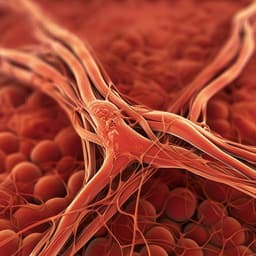
Health and Fitness
Self-supervised learning of accelerometer data provides new insights for sleep and its association with mortality
H. Yuan, T. Plekhanova, et al.
This study conducted by Hang Yuan, Tatiana Plekhanova, and others delves into the effectiveness of wrist-worn accelerometers for classifying sleep stages and examines how sleep duration and efficiency relate to mortality risk. The findings reveal that short sleep duration may increase mortality risk, regardless of sleep quality.
Related Publications
Explore these studies to deepen your understanding of the subject.







